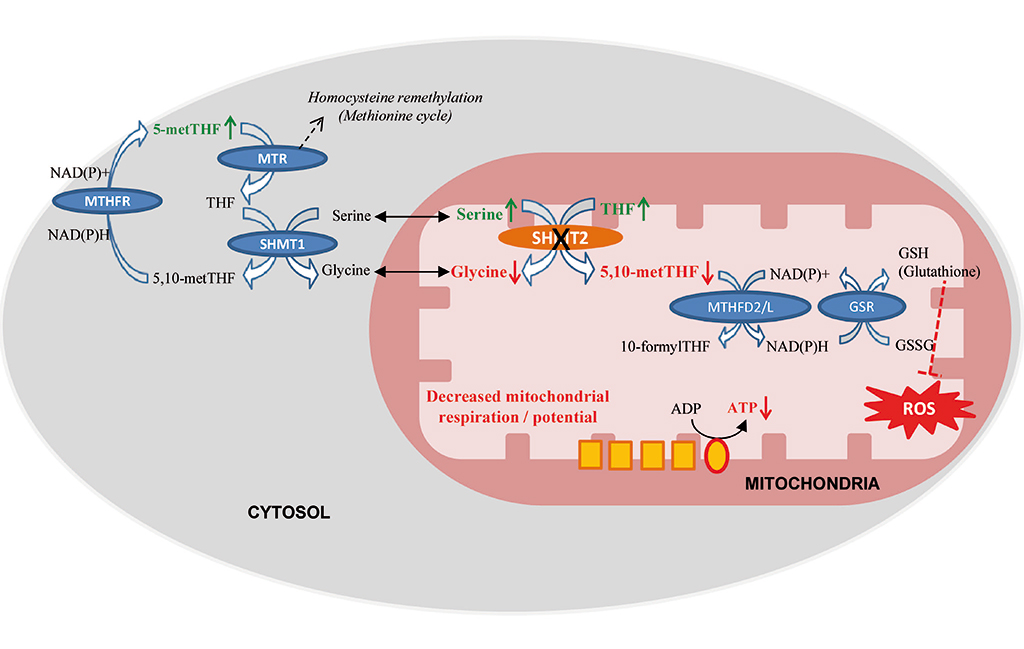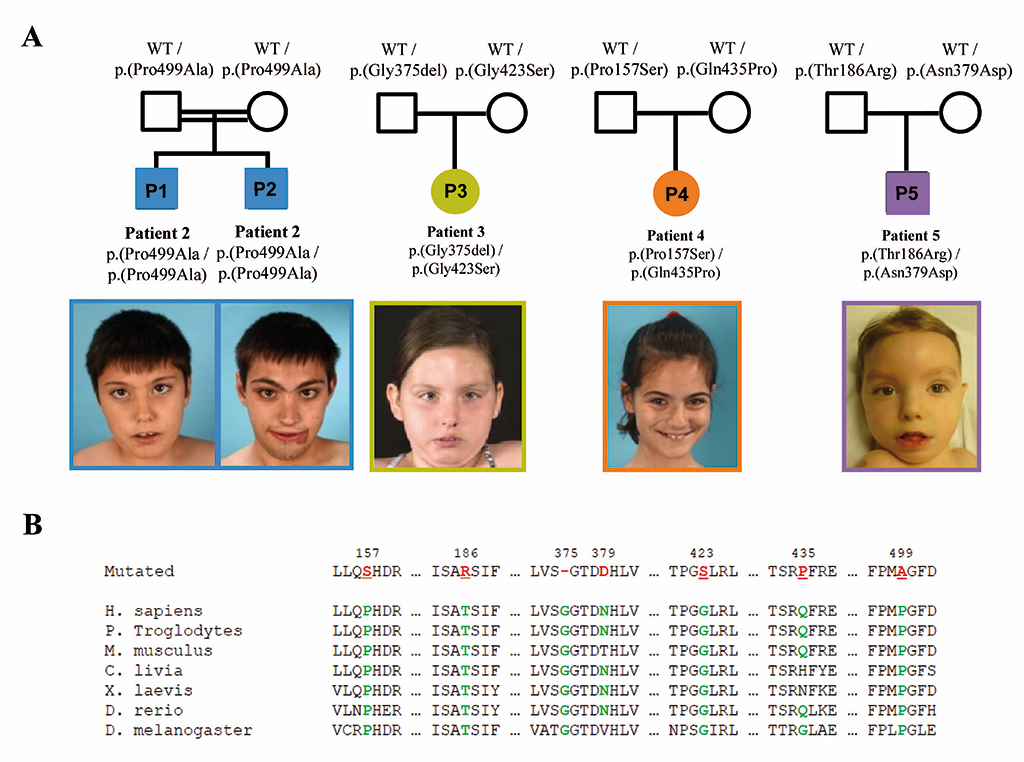Aurora Pujol – Institut d’Investigació Biomèdica de Bellvitge (IDIBELL)
A team led by Aurora Pujol at IDIBELL has identified a novel genetic disease caused by malfunction of the gene SHMT2 located in the mitochondria, the power -house of our cells. SHMT2 directs the production of an enzyme that controls the metabolism of folic acid and serine and glycine aminoacids, essential elements to form proteins, with a crucial role in brain development.
As a consequence, children with SHMT2 deficiency suffer from a life-threatening condition with dysmorphology, deep cognitive development problems and sever motor disorder due to brain malformations, and progressive heart disease that may even require transplantation.
To date only 5 patients have been identified through a project fostered by the URD-Cat, the Undiagnosed Disease Program of Catalonia and International collaborative networks including hospitals in the USA (Mayo Clinic), France (Nantes Hospital) and Barcelona (Sant Joan de Déu). Finding these patients was faciliated by the GeneMatcher platform, which connects clinicians and researchers worldwide sharing their genomic analysis and clinical records. Pujol’s group has developed specific computer tools aimed at identifying changes in the DNA in genes that are most likely to cause disease. This algorithm is trained to navigate among the thousands of variations in the genome that each person has and to discern those that best match to the specific clinical picture that the patient presents. In recent years, the algorithm has been key to diagnosing hundreds of patients with rare brain diseases.
Currently, an experimental treatment by Dr Angels Garcia-Cazorla, has started at Hospital Sant Joan de Deu, replacing the lowered folic acid and adding a cofactor of the deficient enzyme, with striking improvement of biochemical function, milestones and life quality of one of the patients. This is another exemple of how genomic medicine can succesfully end diagnostic Odysseys of families who have been left unanswered for many years, while answering key scientific questions.The work has received the “Late-breaking news” Award at the Anual Symposium of the SSIEM, the Society for the Study of Inborn Errors of Metabolism.

